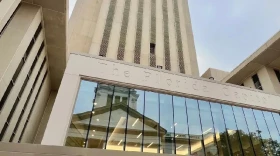Several types of housing assistance remain available via Florida and FEMA for residents of 26 Florida counties whose homes were damaged or destroyed by Hurricane Ian.
Eligible counties are Brevard, Charlotte, Collier, DeSoto, Flagler, Glades, Hardee, Hendry, Highlands, Hillsborough, Lake, Lee, Manatee, Monroe, Okeechobee, Orange, Osceola, Palm Beach, Pasco, Pinellas, Polk, Putnam, Sarasota, Seminole, St. Johns and Volusia.
FEMA grants can help with repair or replacement of hurricane-damaged primary homes and rental assistance for temporary housing while making repairs.
Eligible residents of the same 26 counties are also being considered for FEMA Transitional Sheltering Assistance, which provides temporary lodging at hotels for eligible applicants.
FEMA also has authorized Direct Temporary Housing for Charlotte, Collier, DeSoto, Hardee, Lee and Sarasota counties and will provide transportable temporary housing units and travel trailers, as well as direct leasing of homes for eligible applicants.
Types of assistance provided:
Rental Assistance: FEMA may provide financial assistance to homeowners or renters to rent alternate temporary housing if they are displaced from their primary residence due to damage from Hurricane Ian. The damaged house must be uninhabitable because of the hurricane and the housing needs must not be covered by insurance.
Transitional Sheltering Assistance: FEMA may provide temporary sheltering in a hotel. Those who are in shelters or are displaced because the home is inaccessible or uninhabitable may be eligible. Home Repair/Replacement Financial assistance may be available for eligible homeowners to rebuild or make basic repairs to make their home safe, sanitary, and functional again.
To be eligible for assistance, survivors must apply to FEMA. There are several ways to apply: 1) DisasterAssistance.gov, 2) download the FEMA App for mobile devices, 3) call toll-free 800-621-3362. The line is open every day from 7 a.m. to 11 p.m.
Help is available in most languages. To view an accessible video on how to apply visit Three Ways to Register for FEMA Disaster Assistance - YouTube.
Direct Temporary Housing Assistance/Options can include:
▪ Transportable Temporary Housing Units – FEMA may place a travel trailer or manufactured housing unit (MHU) on a private site or in a commercial park. FEMA may also coordinate with the state and local officials to construct group sites for multiple transportable temporary housing units
▪ Direct Lease – FEMA may lease existing, ready-to-occupy residential properties for use as temporary housing. Eligible property types may include vacation rentals, corporate apartments, second homes, singlefamily homes, cooperatives, condominiums, townhouses, and other dwellings. Direct lease is for eligible applicants whose housing needs cannot be met with other direct temporary housing assistance options.
▪ Multi-family Lease and Repair – FEMA funds the repair or improvement of existing vacant multi-family rental properties that eligible applicants can use for temporary housing.
For the latest information on Florida’s recovery from Hurricane Ian, visit floridadisaster.org/info and fema.gov/disaster/4673. Follow FEMA on Twitter at FEMA Region 4 (@femaregion4) / Twitter and at facebook.com/fema. ### FEMA’s mission is helping people before, during, and after disasters.
All FEMA disaster assistance will be provided without discrimination on the grounds of race, color, sex (including sexual harassment), sexual orientation, religion, national origin, age, disability, limited English proficiency, economic status. If you believe your civil rights are being violated, you can call the Civil Rights Resource line at 833-285-7448




